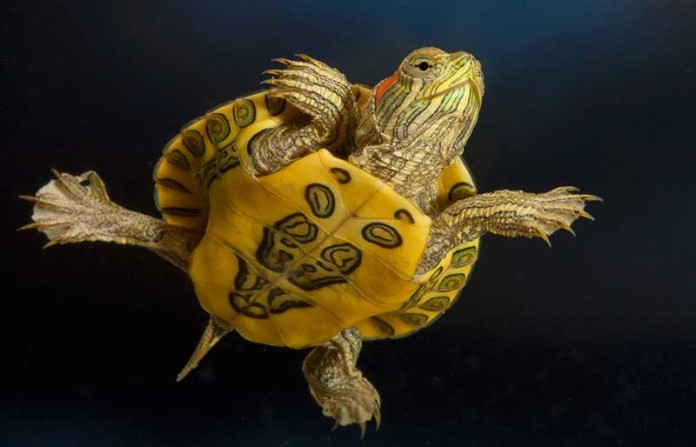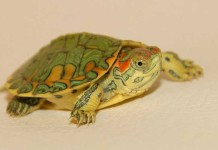Your red eared slider baby requires care above and beyond what a normal red eared slider requires. Many countries have banned the sale of turtles smaller than 4 inches because of the simple fact that people don’t understand that the turtle will get much larger and there is a good chance that it will be abandoned, but if you have one that is smaller than this there are a few things you need to know before you get started.
Caring for a baby red eared slider isn’t hard, but your baby will be more susceptible to eye infections than older turtles. The easiest way to prevent and eye infection is by always making sure that the hatchling’s water is clean (use a filter if you can) and add higher doses of Vitamin A to its diet. If an infection develops, you can wash it with a solution of 3% boric acid and 97% distilled water. A pharmacist can prepare this solution for you. As always, make sure your red eared slider baby gets plenty of calcium in its diet, has a full spectrum light, and is kept in a tank set at 85 degrees Fahrenheit.
Your red eared slider baby will also need you to look out for proper housing and food. For housing, give your hatchling shallow water and a place to get out of the water. For food, always make sure you chop up the appropriate food (mealworms, earthworms, and crickets) into a size small enough for the red eared slider baby. If your baby won’t eat, try a bit of lean beef or ham – that often does the trick.
If your red eared slider baby still refuses to eat, force feed it with a mixture of beef blood and turtle vitamins through an eye dropper. Gently insert the eye dropper into the baby turtle’s mouth and squeeze off a few drops. All you’re trying to do is spur your turtle’s appetite, so take care to make sure that you don’t put in too much. You want the turtle to eat on its own, so give it a chance to do so. Don’t offer the beef or ham for longer than a week before trying the eye dropper technique.
Your red eared slider baby should thrive if kept in these conditions. If your baby develops problems beyond those prevented here, always take it to a veterinarian before things get worse!











